MercoPress. South Atlantic News Agency
Tag: Liberal Democrats
-
Monday, April 7th 2025 - 10:57 UTC
Trump’s 41% tariff on Falklands, “biggest threat since Argentine invasion”, Liberal Democrat leader
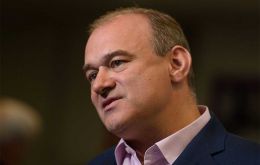
The leader of UK’s Liberal Democrats, Ed Davey has called on the Prime Minister to meet with the Falklands Governor, after President Trump announced tariffs of 41% on exports from the Falkland Islands to the United States.
-
Thursday, December 12th 2019 - 03:43 UTC
Survey says PM Johnson's lead over Corbyn narrower for Thursday's polls
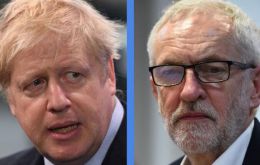
British voters are set to make history in Thursday's general election where much more than who will become Prime Minister is at stake. It is, admittedly, about deciding who will govern for the next five years, but more than that, it is about whether the nation stays or leaves the European Union and everything it entails.
-
Monday, May 27th 2019 - 08:40 UTC
Farage's Brexit party the big winner in UK; Conservatives in disarray
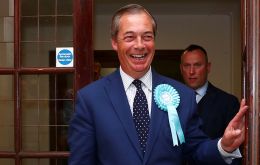
Anti-EU populist Nigel Farage's Brexit Party looked set to triumph on Sunday and the ruling Conservatives endure a historic blow in European Parliament elections in which Britain was never meant to vote.
-
Friday, May 3rd 2019 - 09:05 UTC
Brexit frustration: English voters punish both Conservatives and Labour, Liberal Democrats big wins
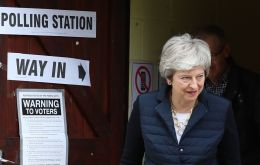
English voters used local elections to punish both Prime Minister Theresa May's Conservatives and the opposition Labour Party for the deadlock over Brexit, partial results showed on Friday.
-
Saturday, May 5th 2018 - 08:26 UTC
England local elections: May relieved, Corbyn questioned and Lib-Dem surging
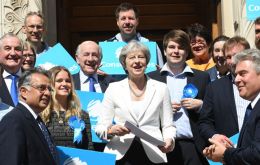
Britain’s two main parties emerged from May 3 local elections in England in a draw, with Labor making gains but failing to capture target councils from the Conservatives. Ukip (Independent party) was almost wiped out, losing all but three of its 126 seats, but the Liberal Democrats had a good night, gaining 75 seats and winning control of four more councils.
-
Monday, February 12th 2018 - 15:46 UTC
Brexit impact studies leaks again questions PM May's approach to negotiations
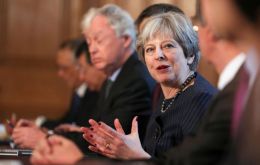
Brexit impact studies released to MPs by the UK government reveal the North East of England and West Midlands will sustain the biggest hit to economic growth from Britain’s withdrawal from the European Union.
-
Monday, September 18th 2017 - 09:17 UTC
Lib/Dem a growing “plausible alternative” given Tories and Labour's disarray, says Sir Vince Cable

Liberal Democrat leader Sir Vince Cable has insisted he is a credible candidate to be the next prime minister. Despite heading a party with just 12 MPs, Sir Vince said he could replace Theresa May in Downing Street.
-
Saturday, May 9th 2015 - 09:06 UTC
Tory majority government, but looking to Scottish independentists' landslide
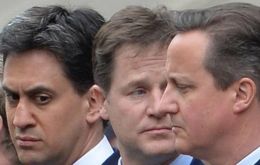
Prime Minister David Cameron's Conservatives won a stunning victory in Britain's election on Friday, which cut short the careers of his top three rivals and put the country's European Union future in doubt.
-
Tuesday, April 7th 2015 - 05:43 UTC
Europe at center of debate in UK electoral campaign that anticipates no clear winner

Several lawmakers from British Prime Minister David Cameron’s Conservatives will join the anti-EU UK Independence Party if he renews a coalition with the pro-EU Liberal Democrats, UKIP’s leader Nigel Farage forecasted.
-
Monday, September 29th 2014 - 08:25 UTC
UK far right party gaining ground into conservative turf
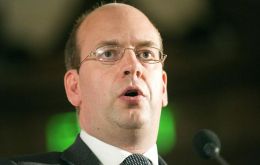
A lawmaker from Britain’s ruling Conservative party defected to the anti-EU United Kingdom Independence Party (UKIP), dealing a blow to Prime Minister David Cameron on the eve of his party’s annual conference.
